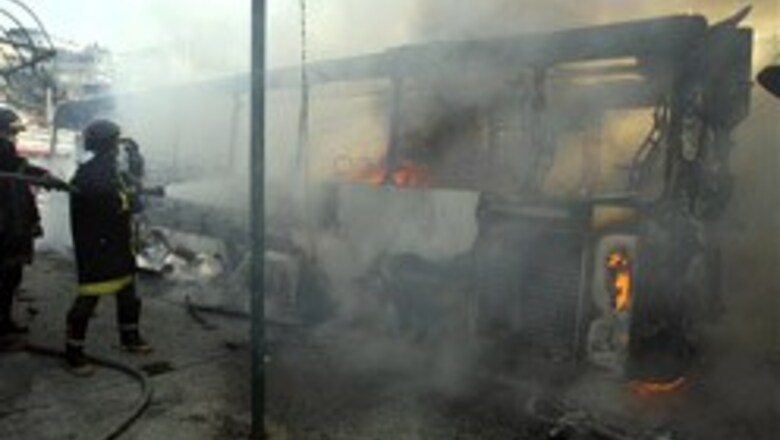
views
Sao Paulo: Four days of unprecedented gang attacks has left 81 people dead in 184 attacks in South America's largest city.
''We're at war with them, there will be more casualties, but we won't back down,'' state military police Chief Colonel Elizeu Teixeira Borges said.
Twenty-one new killings were reported Monday, the state government of Sao Paulo said, putting the death toll at 81: 39 police officers and prison guards, 38 suspected gang members.
The Brazilian President Luiz Inacio Lula da Silva offered to send 4,000 elite troops to restore order, but Sao Paulo state Gov. Claudio Lembo insisted the help wasn't needed.
Meanwhile, the chaos prompted the stock market to cancel late trading and a city that never sleeps was eerily quiet at the start of the work week in Brazil's financial and industrial heart.
''We are in control of the city and we will preserve this control,'' Lembo declared. ''At this moment the army is unnecessary.''
The violence was triggered on Thursday when eight leaders of the First Capital Command gang, who control drug trafficking and many of Sao Paulo's corrupt prisons, were being transferred to a high-security facility in a remote part of the state.
Leaders of the gang, known here as the PCC, reportedly used cell phones the next day to order the attacks.
Officials were worried the violence could spread to Rio de Janeiro, where 40,000 police were put on high alert.
Extra patrols were dispatched to slums where drug gang leaders live, police spokesperson Thais Nunes said.
Police in Sao Paulo said at least 91 people had been arrested since Friday night, when gang members began riddling police cars with bullets, hurling grenades at police stations and attacking officers in their homes and afterwork hangouts.
Starting Sunday night, the gang employed a new tactic: sending gunmen onto buses, ordering passengers and drivers off and torching the vehicles.
No injuries were reported in the dozens of bus burnings, which continued in broad daylight Monday.
Thousands of terrified bus drivers refused to work, leaving an estimated 2.9 million people scrambling to find a way to work.
The violence also weighed in on financial markets, with stocks plunging more than 2 percent. The country's currency, the Real, also fell 2 percent against the U.S. dollar.




















Comments
0 comment